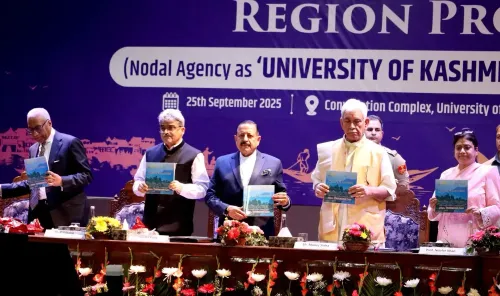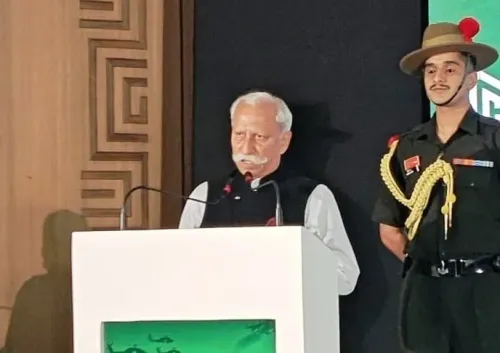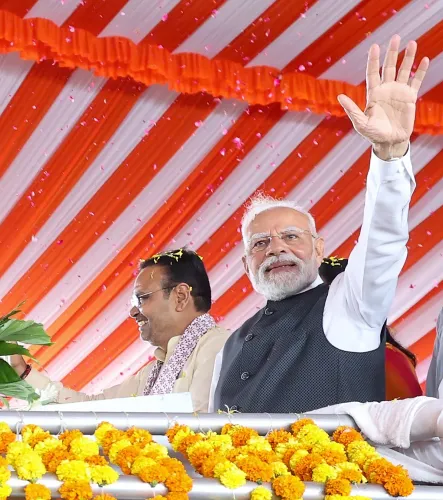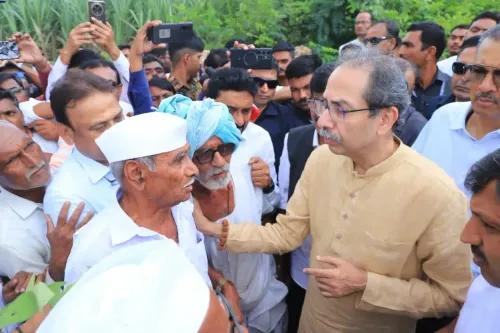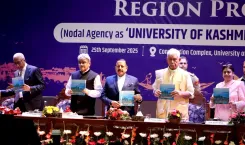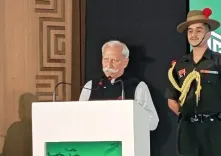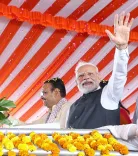Why Did the Karnataka HC Refuse a Stay on the Caste Census?
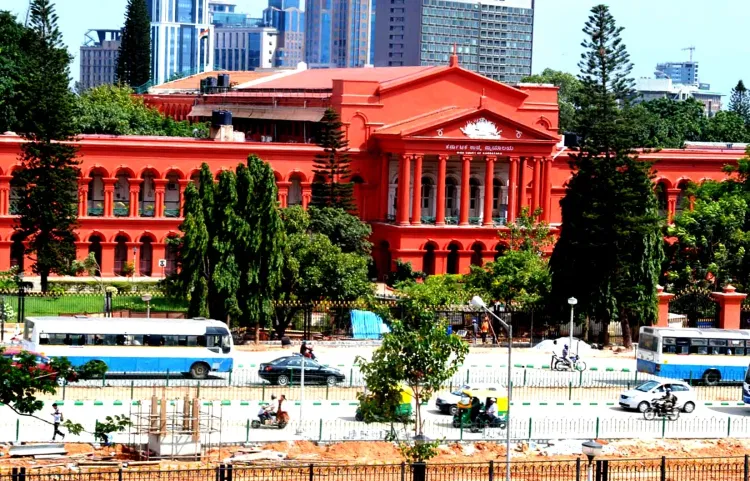
Synopsis
Key Takeaways
- Karnataka High Court allows caste census to proceed.
- Conditions for voluntary participation and data confidentiality established.
- Next hearing scheduled for the second week of December.
- Concerns raised regarding privacy and potential data leakage.
- Significant implications for policy formulation in the state.
Bengaluru, Sep 25 (NationPress) In a significant development for the Congress-led administration, the Karnataka High Court on Thursday declined to place a stay on the Socio-Economic and Academic Survey, widely recognized as the caste census. The court has mandated the state government to guarantee voluntary participation and data confidentiality.
This ruling allows the government to proceed with the contentious caste census without interruption.
A division bench, led by Chief Justice Vibhu Bakhru and Justice C.N. Joshi, issued the interim order while reviewing a series of PIL petitions filed by various community organizations, including the Akhila Bharata Brahmana Mahasabha and the Vokkaliga Mahasabha, which sought to halt the caste census undertaken by the Backward Classes Commission, an autonomous entity within the Karnataka government.
The interim order established specific conditions for the government, stipulating that the confidentiality of the collected data must be maintained, and that the Backward Classes Commission should only receive information that is voluntarily provided by individuals.
The bench further instructed that neither the government nor the Commission should disclose any information and must submit an affidavit to the High Court regarding this matter.
The Commission was also tasked with enhancing public awareness about the voluntary nature of the survey.
The High Court has scheduled the next hearing for the second week of December.
Previously, the bench inquired of Advocate General Shashi Kiran Shetty about how the government intended to safeguard the confidentiality of the collected data. He responded that the government’s E-Administration Division would protect the data, restricting access solely to government personnel.
Professor Ravi Varma Kumar, senior counsel for the Backward Classes Commission, requested permission to offer a brief statement. He noted that, in light of the concerns raised by the High Court, the Commission had conducted reverification to ensure that participation in the caste census would not be mandatory. He assured that individuals opting out would not face any inconvenience.
However, senior counsel Prabhuling Navadgi raised objections, pointing out that both the Centre and the state are executing distinct caste census initiatives, with the Commission collecting Aadhaar numbers and comprehensive details. At this point, the High Court acknowledged that the Commission was indeed gathering Aadhaar information to verify identities.
Senior counsel Vivek Reddy, representing the petitioners, contended that the Commission had only made insignificant adjustments, which would not address the core issues. He expressed concerns that there is a lack of legal safeguards for this caste census, the potential for data breaches, and serious implications for the Right to Privacy.
Earlier, senior counsel Abhisheik Manu Singhvi argued that the survey aligns with the government's policymaking efforts and is crucial for developing social welfare programs. He asserted that issuing an interim stay might have lasting repercussions, stressing that no precedent exists for such a stay order. He explained that the survey's purpose is to collect statistical data, which is essential for formulating effective policies.
He further argued that endorsing the petitioners' claim—that only the Centre has the authority to conduct such surveys—would limit the state's powers. He noted that the state government had previously established the Havanuru and Venkataswamy Commissions, indicating that this argument undermines the federal structure of the nation.
Singhvi maintained that the assertion that only the Centre can conduct a census is incorrect and infringes upon state authority. The government cannot conduct selective surveys; a comprehensive survey is essential for identifying backward classes. Following constitutional amendments, the state has been empowered to execute such surveys. He stressed that a thorough survey is integral to the policymaking process.
He added that backward classes cannot be neglected from a distance.
It cannot be claimed that the Centre should exclusively conduct a survey while the state remains inactive. Referencing Bihar, where a caste census has already been completed, Singhvi asserted that Karnataka cannot postpone indefinitely for a central census, as this would undermine state governance. He maintained that the state legislature possesses the authority to conduct such a survey, and that caste classification must be based on statistical data. The results, he concluded, could significantly impact appointments, promotions, and more.

